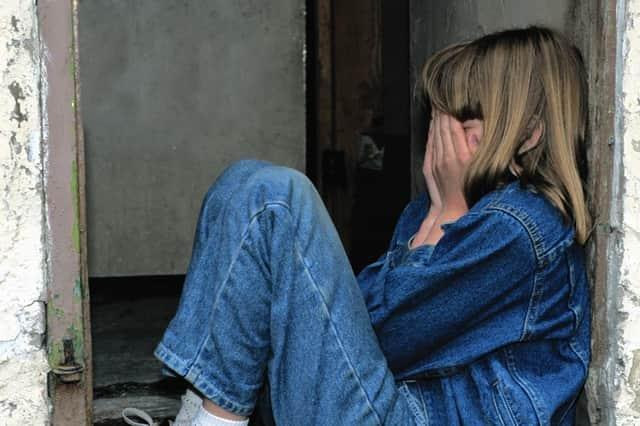NATIONAL: Call for action as report reveals about a quarter of 14-year-old girls self-harmÂ


The charity's annual Good Childhood Report, which examines the state of children's well-being in the UK, found that out of the 11,000 children surveyed one in six reported self-harming at 14.
Based on these figures, the Children's Society estimates that nearly 110,000 children aged 14 may have self-harmed across the UK during the same 12-month period, including 76,000 girls and 33,000 boys.
Advertisement
Hide AdAdvertisement
Hide AdOne young person told the charity: '˜I felt like self-harming was what I wanted to do and had to do as there was nothing else I could do. I think there is help for young people but not the right kind of help.
'˜Feeling not pretty enough or good enough as other girls did contribute towards my self-harming, however, I don't feel just being a girl is the reason as I think boys feel the same way too.'
Almost half of 14-year-olds who said they had been attracted to people of the same gender or both genders said they had self-harmed (46 per cent), analysis revealed.
Children's Society chief executive Matthew Reed said: '˜It is deeply worrying that so many children are unhappy to the extent that they are self-harming.
Advertisement
Hide AdAdvertisement
Hide Ad'˜Worries about how they look are a big issue, especially for girls, but this report shows other factors such as how they feel about their sexuality and gender stereotypes may be linked to their unhappiness.'
Mr Reed said that ministers now needed to act.
He said: '˜Early support for vulnerable children and families in the community, which can help prevent mental health problems from developing, is also vital, and ministers must urgently address the £2 billion funding shortfall facing council children's services departments by 2020.'
Roy Perry, who chairs the Local Government Association children and young people board, said the figures revealed a '˜crisis in children's mental health'.
He added: '˜This is why we are calling for councils and schools to be given the funding to offer independent mental health counselling so pupils have access to support as and when they need it.
Advertisement
Hide AdAdvertisement
Hide Ad'˜Councils across the country work hard to ensure children and young people can access the support they need. However, with children's services facing a £3 billion funding gap by 2025, this is getting increasingly difficult.
'˜Many councils are being forced to cut early intervention work, including youth services, which helps children avoid reaching crisis point, perform better at school and avoid mental health issues in later life.'
He added: '˜We need to develop a system that says yes, rather than no, to children when they ask for help.'
Dr Max Davie, officer for health promotion for the Royal College of Paediatrics and Child Health, added: '˜Education around issues like appearance, gender stereotypes and sexuality is also desperately needed and should be included in the new relationships and sex education curriculum.
Advertisement
Hide AdAdvertisement
Hide Ad'˜This country's mental health crisis is not going to go away overnight, but with appropriate action from Government, there is hope that fewer children will have mental health worries and be happier with their life as a result.'
The Good Childhood Report draws on the Children's Society's annual survey of 10-to-17-year-old children and their parents from 2,000 socio-economically representative households in England, Scotland and Wales.
The report also uses the Millennium Cohort Survey, which follows the lives of 11,144 children born in the UK in 2000-01.
The Department for Education has been contacted for comment, the Press Assocation has said.Â